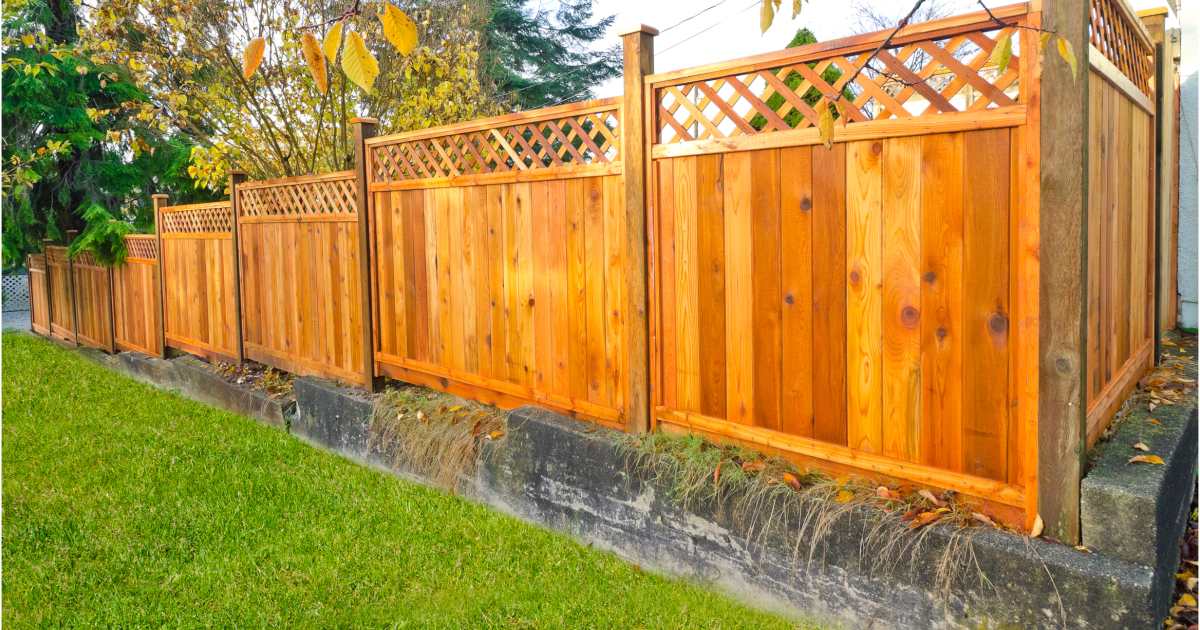All Categories
Featured

Just like any kind of outdoor framework, vinyl fences still need regular cleaning to keep them looking beautiful and to prolong their life expectancy. Here are some of the finest practices for cleansing your vinyl fencing.
- Regular Dusting and Sweeping. Regular care is essential to avoid debris from building up on your vinyl fence. The most convenient method to preserve your fence is by on a regular basis cleaning or sweeping off any type of dirt, leaves, or various other particles that gather.
- Moderate Soap and Water for Routine Cleansing. For regular maintenance, a simple soap and water option works marvels. It's a very easy, efficient method to clean your plastic fence without causing damage. Below's just how to clean your plastic fencing with soap and water:
Step 1: Mix a moderate cleaning agent, such as dish soap, with warm water in a pail. Purpose for about 1/4 mug of soap for every single gallon of water. Step 2: Dip a soft towel, sponge, or non-abrasive brush into the option and gently scrub the surface of the fence. Take note of dust build-up on corners, sides, and low-lying locations where grime might gather. Step 3: After cleaning the surface area, rinse it completely with a garden hose to remove all soap residue. This method is great for light dust and crud and can be done every couple of months to preserve the appearance of your fence.
- Utilize a Power Washer for Stubborn Discolorations. If you've ignored your plastic fence for a while, or if it has built-up crud, mold and mildew, or mold, a power washer can be an efficient tool for deep cleansing. However, you need to use the proper pressure to avoid harming the vinyl. Below's just how to securely power wash your vinyl fencing:

Action 1: Set the power washer to a low-pressure setting, ideally around 1,500-2,000 psi. High pressure can damage the vinyl surface or create it to break. Step 2: Stand at the very least 2 feet far from the fence and start spraying from the top down. This helps prevent touches and makes certain that dust is cleaned off effectively. Step 3: Move the power washer nozzle in a side-to-side sweeping movement, and make sure to keep the water stress constant. Tip 4: Wash the entire fence extensively with water to eliminate dirt and cleaning agent deposit. Power washing is an outstanding alternative for big fencings or for those with consistent dirt and discolorations that soap and water can't get rid of.
- Removing Mold and Mold. In shaded or moist areas, mold and mildew and mold are usual troubles for plastic fencings. To fight this, you can use a remedy of vinegar or bleach to eliminate the development and sanitize. Here's exactly how to treat mold and mildew on your fence:

Step 1: Mix one mug of white vinegar with a gallon of cozy water. Conversely, mix 1/4 cup of bleach with a gallon of water. Step 2: Use the option to the impacted areas using a soft towel or sponge. Let it rest for concerning 10-15 mins. Action 3: Rub the areas with a non-abrasive brush to lift the mold and mildew or mildew off the surface. Tip 4: Rinse extensively to eliminate any type of cleaning remedy and debris. If you select to utilize bleach, be careful not to spill it on nearby plants or products, as it may cause damage or staining.
- Vinyl Fencing Cleaners for Difficult Spots. For challenging, persistent stains like grease, pen, or tar residue, you can utilize a specialized vinyl fence cleaner. These products are created to safely tidy plastic without causing damage. Make certain to follow the product's instructions for best outcomes, and examination it on a small, low-profile location of the fencing initially.
- Preventing Future Dust and Discolorations. While cleaning is necessary, protecting against future stains and buildup can make your upkeep regular a lot easier. Take into consideration these tips for long-lasting upkeep:
Trim vegetation: Thick plants, creeping plants, or hedges can trap dampness against your vinyl fencing, bring about mold growth. Cut neighboring plants to make sure the fencing remains tidy and dry. Seal cracks and voids: Examine your fencing routinely for fractures or voids, and seal any that you locate to keep dust and water from entering the fencing framework. Install a protective coating: Some property owners use vinyl-safe safety finishes to their fences. These layers can serve as a barrier against dust, UV rays, and water, reducing the frequency of deep cleansing required. 7. Specialist Cleansing. If you're uncertain about cleaning your fencing on your own, or if it needs a deep clean, think about hiring a specialist. Many cleansing business offer fencing cleansing solutions and have the equipment and experience to take on difficult stains without harming your fence. They can also handle high or big fencings that might be challenging to clean by yourself.
Final thought. Plastic fencings are low-maintenance, however they still need regular like keep them looking their finest. By using mild soap and water for regular cleaning, using a power washing machine for stubborn dirt, and dealing with mold and mildew or mildew quickly, you can guarantee your plastic fence stays excellent. Normal cleaning, along with safety nets, will prolong the life of your fence and maintain it enhancing the charm and protection of your building for several years ahead.
Latest Posts
Quick Bites and Sweet Treats at Gasoline Allie's.
Published May 09, 25
1 min read
Boost Your Property with Montana Fencing Products
Published May 08, 25
1 min read
Bring Your Vision to Life with Full Circle Strategic Marketing Marketing's Video clip Manufacturing
Published May 08, 25
1 min read
More
Latest Posts
Quick Bites and Sweet Treats at Gasoline Allie's.
Published May 09, 25
1 min read
Boost Your Property with Montana Fencing Products
Published May 08, 25
1 min read
Bring Your Vision to Life with Full Circle Strategic Marketing Marketing's Video clip Manufacturing
Published May 08, 25
1 min read